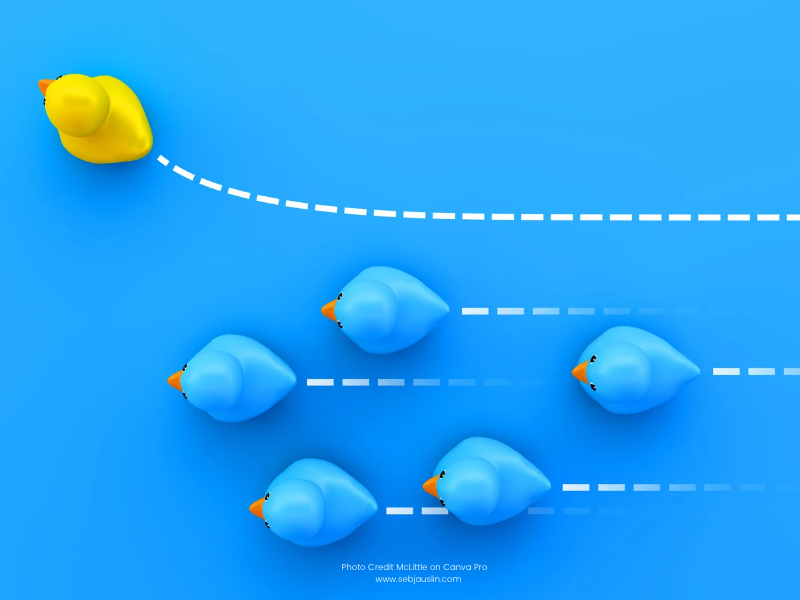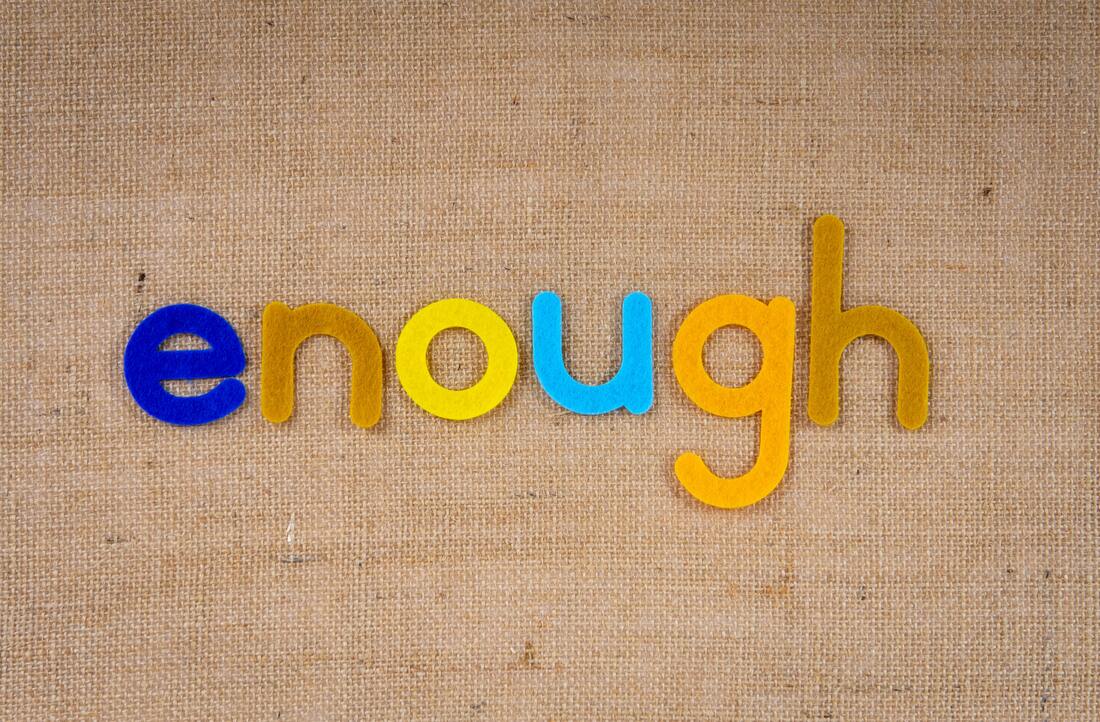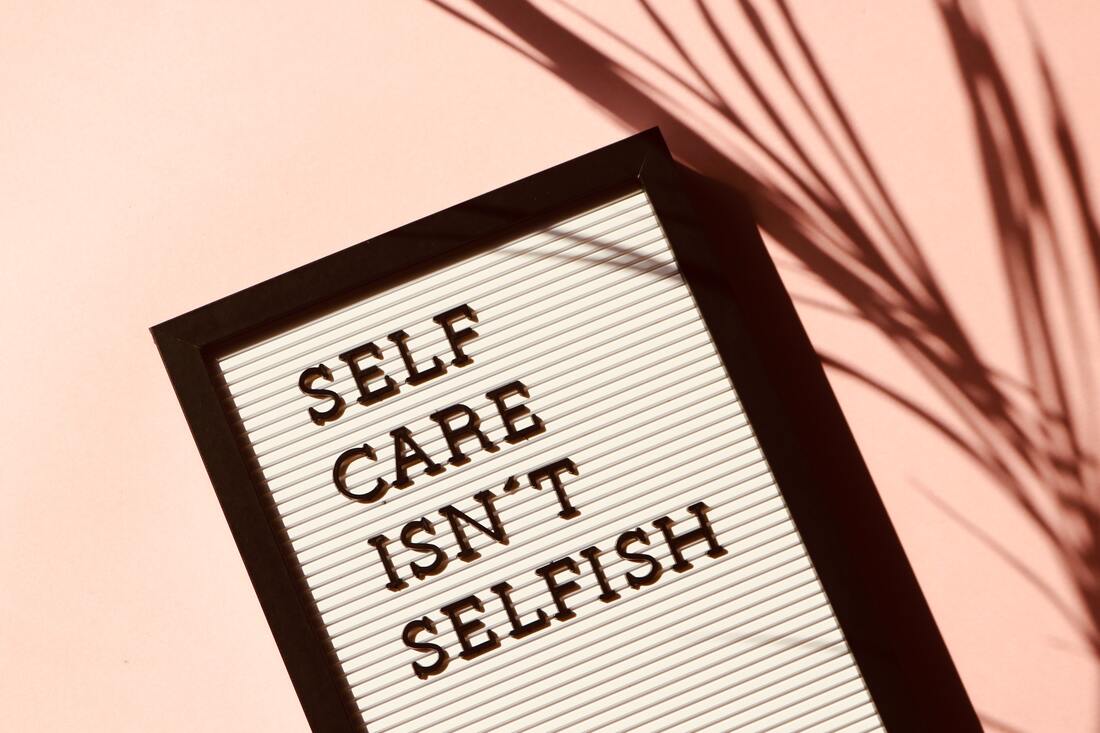|
So the good ‘ole fashioned things, like handwriting, are actually best?!
Did you ever doubt it?! Remember, the rule of anything is that if you do something different, it activates the brain differently. The question, though, is is this a good, neutral, or bad thing for the brain. With the advent of computers, and more recently tablets, we are spending less and less time handwriting. This also includes in learning environments such as at school and college.
0 Comments
The belief that more hours at work equate to higher productivity is a myth.
This misconception has been deeply ingrained in our professional lives, leading us to sacrifice health, relationships, and leisure to pursue an elusive ideal. Actual productivity is not about stretching our workdays thin but thriving across multiple dimensions of our lives. Productivity isn't a linear concept. It's a multidimensional phenomenon that goes beyond professional achievements and encompasses the following dimensions: A few years back I worked with a client, let’s call him Eric, who was the COO of a medium-sized, established company. I was inspired by my work with him, to write this article about how our thinking / mindset / perspective can trip us up.
Everybody has set ways of thinking about things. This is true for your private life as well as in your working environment. Where your perspective comes from and what it is based on comes usually from past experiences. By past, I mean it can come from way back, or even recent bad experiences with the last boss or partner or life in general. What matters now, in the present moment, is the awareness that these experiences exist, might be driving your behaviour and give you your perspective on things. This can form beliefs, biases, judgements and any, negative thoughts. If you are ready to start changing the results you are getting then these tips can help you challenge your thoughts. After all, Einstein says: “Insanity is doing the same thing over and over again expecting different results.”
Far too often many of us are fully unaware of our personal power or we are far too quick to give it away to others, relinquishing control, and responsibility for the reality we live in. In this blog post I would like to encourage you to take back your personal power by consciously choosing to step out of “Victim Mindset” and into the “Victor Mindset.”
How to identify that you are stuck in the “Victim Mindset”
While self-esteem is an indication of how you see your value and worth, it can affect relationships, career, motivation, behaviour, and wellbeing. In short, self-esteem can significantly increase or decrease the overall quality of your life.
A healthy self-esteem allows you to acknowledge your potential, set healthy boundaries, have a clear understanding of your needs and strengths, feel a sense of belonging, as well as feel courageous enough to grow, take risks and seize opportunities. Remaining in a healthy state, similar to physical exercise, requires regular efforts and attention. It may be hard, but it will prove to be worth the effort and time investment. In order to cultivate a healthy self-esteem, here are five suggested exercises that you could implement in your day-to-day life. Are you facing an important decision and asking yourself what to do?
Effective decision-making is a critical skill for any leader, and your choices can significantly impact your team, organisation and personal life. This 7-step process ensures that the chosen solution is the best possible outcome for all three: 1️⃣ Identify the problem or opportunity Gather all the facts and data. Analyse them thoroughly and objectively. The more facts and data you have, the more equipped you are to make an informed decision. 2️⃣ Define your criteria for success Clear criteria will help you evaluate options objectively to make an informed decision. Considering factors such as values, strengths, and alignment with your vision for the future will determine whether your decision is informed. The end of the year is nigh! And with it comes a lot of busy work—some fun, some not so fun. Whether it’s personal or professional, the end of the year is about finishing up, taking stock, and making plans. And that’s all before we get into the crush of the holidays. Our To-Do lists can be very long this time of year. What we often leave off our list is taking time for ourselves. Yet, the crazier life becomes, the more we need to give ourselves space to just be. We need to spend time on our self-care. You have probably heard the term self-care tossed around, but what is it exactly? It is any activity that we deliberately do to take care of ourselves—mentally, emotionally, and physically. Self-care is time or an activity that builds us up rather than takes away our energy. It is a way to recenter body and mind when we feel scattered and overwhelmed. Building trust within a team isn't just about improving performance; it's about forging a workplace culture that aligns with integrity, innovation, and shared success.
When trust is the cornerstone of your leadership, solving complex problems becomes a collective endeavour, and creating lasting change becomes a shared mission. A team that trusts its leader is a team that's committed, resilient, and ready to go above and beyond. But how do you earn this trust? Empathy It's about demonstrating that you prioritise your team’s well-being. For instance, recognising the importance of work-life balance isn't just about offering flexible hours—it's about respecting those hours. When your team knows their time is valued, they're more invested during working hours. Are you creative?
Would being more creative so you can better navigate the daily ups and downs of your life? As an executive coach and writer of murder mysteries (currently working on the third book in a series), expanding my creativity is essential. First thing in the morning, I like to read thought-provoking books. Reading while sipping coffee starts my day with energy and depth. The book I’m reading now is The Creative Act: A Way of Being, by Rick Rubin. Rick Rubin is an eccentric and acclaimed music executive and producer who, in 2003, revitalized Johnny Cash’s career. In 2007, he was dubbed "the most important producer of the last 20 years" by MTV and was named on Time Magazine’s list of the “100 Most Influential People in the World.” In this book, released in January 2023, Rubin asserts that we are all creative. Without creativity, we could not survive in the world. He writes: To create is to bring something into existence that wasn’t there before. It could be a conversation, the solution to a problem, a note to a friend, the rearrangement of furniture in a room, a new route home to avoid a traffic jam. Whether it excites us or paralyses us, change is an inevitable part of life and leadership. In today's fast-paced and dynamic business world, leaders must navigate change successfully to ensure that they and their organisations can adapt, grow, and thrive. In this article, we'll explore seven key strategies that you can use to develop the skills and mindset needed to navigate change successfully.
When faced with a difficult decision it is important to know that you always have choices. It is hard to realize there is more than one solution to any given problem. One important life skill to learn is how to find those choices when faced with a difficult decision. With this skill, life becomes easier to keep in balance. More balance means less stress.
Think of a situation you are facing and see if any of the comments below can be applied: Which of us doesn’t want to have a good life? Who doesn’t want to be enough? With a lovely house and garden, sweet children, a loving spouse, who come together for breakfast, lunch, and dinner. A life filled with good friends who celebrate over an elaborate meal and extended family that come together often with smiles and hugs. A life with a rewarding job that appreciates your work and brings out your best. While these scenarios might be things that people dream about, they are scenes from stock photos, advertising campaigns, lifestyle shows, and social media influencers. Yet they inspire us to want to be perfect, to have perfect lives. They prey on our feelings that we are not enough. Then, for many of us, the drive to have a perfect life overwhelms. In her book, End the Struggle and Dance With Life, Susan called the drive to always be perfect an addiction. Always having to be the best, always going above and beyond, always having to prove yourself are just ways of trying to show the world, and yourself, that you are good enough. Being a perfectionist, while it might look as if everything is fantastic, takes its toll on our health and our relationships. It can also hold us back from new opportunities. All those images and videos we see of perfect-looking people living perfect lives only has the echo of truth in them. What we never see in those images is the mess behind the camera. The other people working behind those scenes to make the illusion seem real. So while those images make us feel as if we are less than perfect, they only represent something superficially “perfect.” The reason our addiction to perfection can be so devastating is that we believe our self-worth is measured by our performance. But since no one is perfect, it is impossible to attain self-worth through perfection. Trying to be perfect in everything we do is only a means to feel as if we are good enough. Have you set unattainable, high standards for yourself? Do you become self-critical when you do not achieve said high standards? Have you become critical of others for not meeting the standards which you have set? Does your fear of failure lead you to procrastination or hinder you from following your dreams? If you have answered yes to any of the above, you may have perfectionistic tendencies.
While continuously striving to be the best version of yourself and having attention to detail can be a great driving force, perfectionism often becomes a roadblock. How do you know if perfectionism is blocking your path to self-actualization? Constant Interruptions, Disturbances, Noise - How They Can Rob You of Your Focus (and Motivation)21/9/2023 They are building all around me this week – even with a jackhammer just below me. It is unbearably noisy. This noise is robbing me of my focus and, consequently, my motivation.
Currently, I am writing this while sitting in a quiet restaurant near my apartment and right by the lake . Hotel lobbies seem to stimulate creative thoughts. Nothing against the builders or the need to repair / renovate something in the building. That is life. We need to do maintenance on buildings just as we need constant maintenance in the form of self-care. But the level of disruption has made me appreciate how much noise makes it difficult for me to focus and concentrate. I had intended to do my morning brain training before I started work today but found that the drills and the jackhammer were too disrupting. So disrupting, in fact, that I left the house and retreated to this lakeside location. No matter how much I encouraged myself to, I just could not handle it. In the Oxford Dictionary, the definition of a “control freak” is “a person who feels an obsessive need to exercise control over themselves and others and to take command of any situation.” The Merriam Webster dictionary says that a control freak is “a person whose behaviour indicates a powerful need to control people or circumstances in everyday matters.”
This personality trait could stem from a chaotic childhood, alcoholic parents, abusive behaviour, or early abandonment. Such experiences can make it hard for people to trust or relinquish control to others. The fear of falling apart pushes them to control what they can. As their emotions are all over the place, they feel loss of control. For this reason control freaks will micromanage whatever they can with the belief that this makes them strong. People who feel out of control tend to become controllers. I imagine each and every one of us is a control freak, or takes on the behaviour of such, at some point or another. The fear of failure is what makes it so important to control everything when you do not trust anybody else to do a good job. One difficult aspect of being around a control freak is accepting that they do not understand how their behaviour and choice of words affect the people around them. Another difficult aspect is not to take it personally. This behaviour comes from deep inside and the person is actually quite unaware of being a control freak. Even the most enlightened of us can’t always stop ourselves from worrying about the future and asking ourselves “what if?” Underneath our connection to our Higher Self that we work so hard for, lurks the fear of future problems just waiting for an opening to ask us “what if?”
You know how it is…trouble is brewing at your job, layoffs could be coming. What if you lost your job? There have been a rash of pedestrian traffic accidents lately. What if your child is hit by a car? Your mother’s routine check-up turns into several follow-up appointments. What if she is sick? And on and on. Before we know it, our Chatterboxes have taken over. We are filled with fears about the future and the “what if” questions drag us down to our Lower Self. Many of us “what if” ourselves into a perpetual state of worry. “What if” questions come from our Lower Self, our inner chatterbox that wants us to live in perpetual fear. Susan wrote in Feel the Fear and Do It Anyway, “When the ‘what ifs’ are out in full force, the internal Chatterbox is at it again. You look at the unknown and try to predict the future; you try to take control of outside forces. Both are impossible. At this point you might notice you are driving yourself crazy.” Fear of failure often stands in your way in the journey of personal and professional growth.
As a society, we view failure negatively as something that diminishes our worth or derails our progress. What if you could shift perspectives? I’m saying, view failure as an opportunity to be more faithful to yourself. When embraced with the right mindset, failure can become a catalyst for transformative change, leading you closer to the authentic leader you're meant to be. Failure Teaches You a Lesson Every failure carries a valuable lesson. Whether it's an exam, a presentation, a project that didn't meet expectations, or a strategic decision that led to unexpected outcomes, each failure serves as a teacher. Limiting beliefs are negative thoughts and assumptions that hold us back from achieving our goals and reaching our full potential. They can be deeply ingrained and often go unnoticed, but they can have a significant impact on our lives if left unchecked. In this article, we'll explore some effective ways to manage limiting beliefs and overcome your inner critic.
Identify Your Limiting Beliefs The first step in managing limiting beliefs is to identify them. Start by paying attention to your inner dialogue and noticing any negative thoughts that come up. These thoughts might include things like "I'm not good enough" or "I'll never be able to do that." Once you've identified your limiting beliefs, write them down and examine them more closely. Ask yourself whether these beliefs are based on facts or whether they are simply assumptions. With leaders advocating for individual progress and team success, coaching is essential to career satisfaction, retention and employee wellbeing and plays a critical role in achieving fulfilment.
Coaching is more than just talking It's a collaborative, thought-provoking process involving the coach and the client working together to identify core values, individual strengths, and areas for growth to overcome obstacles that stand in the way of fulfilment. In the corporate world, this Alliance can have a transformative impact, helping leaders and employees navigate complex challenges, improve communication, and enhance overall performance through, for example, understanding someone else's perspective. Providing leaders and employees with the support and guidance they need to feel fulfilled is essential for any successful business. 1. Coaching helps individuals identify their core values and align their work with those values, promoting fulfilment and improving overall performance. When employees are clear on their values and align them with their work, they are likelier to feel a sense of purpose and fulfilment every day. Coaching helps identify those core values and explores how to integrate them into work. This process is what leads to a more meaningful and fulfilling work experience. “Challenges in life either do or do not have solutions. If there is a solution somewhere, then there is no need to be overwhelmed by the challenge. If there genuinely is no solution, then there is no point being overwhelmed by it." Unknown If you genuinely believe there is a solution to every problem, there is a greater likelihood that you will find the solution. Personally, I believe the approach “where there is a will, there is a way.” I do not always find the way as soon as I would hope – which is sometimes due to a lack of motivation. I then remind myself that I know that nothing stays the same, and therefore I have nothing to fear. Things will change even if I do nothing.
The first and most important step is to realize and truly acknowledge that unless you take care of yourself nobody else can or will. When I say, “truly acknowledge”, I mean that you have accepted the following:
These are a few examples, expressed in simple terms: You have taken charge of your life, know your Values and maintain your Personal Power. You can live your life … it does not have to be living you! To reach your potential as well as feel content in the course of your life, having Life Skills is essential. They are the “software” you have the option to acquire along the way. You are born with the “hardware”: your body. Your behaviour comes under the heading “software” because this can be changed, improved, modified, extended or even deleted if necessary. Many of these Life Skills are received in the home and at school while growing up, others you learn later in your development, taught by “the school of life”, friends, colleagues, courses, books, teachers, trainers, and coaches. You can also teach yourself with patience and practice based on all of the above, plus past experiences, both positive and negative ones. What makes one person successful while others keep struggling? Everybody goes through difficult phases, has obstacles to overcome and disappointments to heal. This cannot be avoided. How you cope with all of these is the key to making your life a success. Life Skills offer support with how you handle your life. They can be defined as a group of cognitive and personal abilities that enhance your capability to lead a life in which you reach your potential. Every person has strengths and weaknesses; getting to know them is important in the process of finding out “who” you are and therefore “what” you want. Not everybody has the same dream. You should not judge others but find your way forward based on your own values. The success of some people is not a matter of luck; they will have learned how to manage their life, and they will have acquired the life skills - the “software”. Understanding that life is about change, which is inevitable, is one of the first steps on this ladder to the top! Your personal worth will benefit knowing you have the necessary skills in life to face everything that comes your way with confidence. by Suzie Doscher, Executive Coach focusing on Self-Development, Self-help Author since 2014. Photocredit: Cottonbro / Pexels Excerpt from the 1st Edition of BALANCE - a Practical Handbook for Life's Difficult Moments. Contact one of our coaches for a free introductory session.I am a big believer that moving forward means improving the existing quality of your life. Of course reaching goals and increasing your performance it important. How you feel while you are doing this is what I believe makes up for quality of life.
You can be reaching goals and increasing your performance by pushing through, being competitive while running on an empty battery. At some point your body and emotional self will not be able to keep up. To increase your quality of life I suggest doing things differently or adding something entirely new to your routine. Maybe this is changing your location or job, or even friends, these are big changes. How about starting with getting rid of some behaviour patterns that no longer serve you? Replace them with behaviour patterns that do serve you. I love personal growth & development. My personal as well as professional experience can vouch for that each step taken, even small steps, results in change. Imagine climbing up a ladder. With each step your view changes and brings a new perspective. Make the kind of changes that stick! Life changes all the time, sometimes daily. During your lifetime you never stop growing, developing and learning, which of course means changing. If you resist this, you run the risk of staying stuck. Here is how you start: Staying calm and grounded requires certain behaviors that feed being calm and grounded. Each person will have his/her own requirements to feel calm and grounded. The actions you need to take are unique to you and will most likely differ from those others need to take. Just as each person has his/her own interpretation of success, each person has an individual feeling calmness and being grounded. Listen to yourself to know what is best for you. Based on my own personal experience, this also changes depending on age: When I was 30, my focus was very different to 40.
You will know what is right for you. Follow your heart and remember that you cannot take anything with you. No matter what you achieve and how much you earn, how you feel along the way is just as important. By Suzie Doscher, Executive Coach focusing on Personal Development, Self-help author since 2014. Photo credit: Pexels Whatever your age and goals, if you would like support, contact Suzie or one of our other coaches for a free introductory session.We all know the feeling—angry, upset, and sad because the world is making our life less than perfect. Our boss is mean, our friends aren’t there for us, other drivers cut us off in traffic, the store clerk was rude, we got a surprise bill from the electric company. On and on, we have so many miseries that are not our fault.
Susan wrote in Feel the Fear and Do It Anyway, “We all have a tendency to look around for someone to blame if things are not working out to our liking.” Blaming others of things outside our control means we are not taking responsibility for ourselves. Blame makes us into an injured party who has no control, who lets the world beat them down, who doesn’t respect themselves, who lives in misery. In Chapter 4, “Whether You Want It or Not…It’s Yours,” Susan talks a lot about taking responsibility for our own lives. As adults, we often feel that we are burdened with lots of responsibility. But responsibility for your day-to-day living is far different than taking responsibility for how you react to your day-to-day living. |

























 RSS Feed
RSS Feed